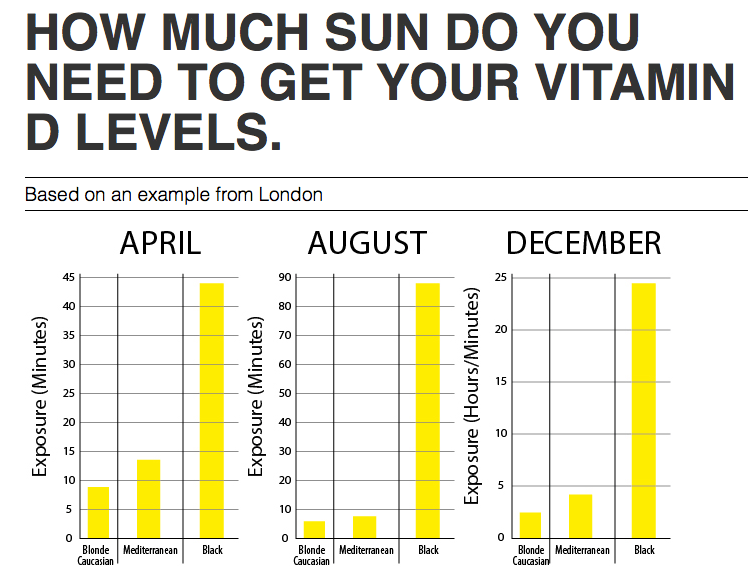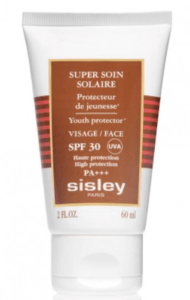People are finally beginning to realise how important it is to use sunscreen. However, does choosing a safe and suitable sunscreen for you and your family leave you totally and utterly confused!
The most significant topic regarding sunscreens at the moment seems to be choosing between ‘Mineral or Chemical Sunscreen’. We will do our best to present the facts to you, and hopefully this will make purchasing your next sunscreen a lot less confusing!
Video – Physical vs Chemical Sunscreens
Mineral Sunscreen:
Mineral sunscreens are also known as ‘Physical’ sunscreens. They have a somewhat tarnished reputation because in the ‘old’ days they were dreadful to apply and they would leave people looking whiter than a bottle of milk! The good news is that things have got a lot better. Micronization – grinding of the material particles has improved immensely and using mineral sunscreens isn’t nearly so daunting as it once was, that said, people who have a darker skin tone, it will still leave you with a white tainted appearance.
The two main active ingredients in mineral sunscreens are Zinc Oxide and Titanium Oxide. These are the ‘reflectors’ that sit on surface of the skin forming a protective physical barrier between UV rays and the skin beneath. The UV rays are then reflected away so stopping them from entering the skin.
Once applied it creates an instant barrier, you do not need to wait for absorption into the skin before going into the sun. It will protect you from both UVA and UVB rays; it will also stay active longer when in UV rays than chemical sunscreens.
Mind The Gabs!
The critical thing to remember when using a physical sunscreen is that for the skin to get complete protection, the whole area has to be covered with a generous amount to create the barrier that reflects UV rays, an area that is sparsely covered could allow UV rays to penetrate the skin.
Mineral sunscreens are thought to suit people who have sensitive skin but to be on the safe side check the labeling and avoid products that have Oxybenzone or Octinoxate as both Mineral and Chemical sunscreens have some amount of chemicals in them these days.
Mineral sunscreen is also more suitable if you have any skin blemishes, skin that tends to flush or has redness, or eczema, this skin type can be irritated by heat, but as the UV rays are deflected away and not absorbed into the skin, mineral sunscreen is more suitable.
Sand and Sunscreen Don’t Mix!
As mineral sunscreens have a much thicker texture to them, applying while on the beach can be a bit tricky. Imagine the scene, you get out of the water, you are trying to get this thick sunscreen rubbed into your skin, and the dreaded sand starts to get everywhere, it would be like rubbing sandpaper to your body, pleasant situation to be in, is it!
When applying mineral sunscreens more is always better, remember it works by forming a ‘barrier’ so that it can protect the skin, so apply liberally.
For daily use on the face, and for the ladies who want to apply makeup, Mineral sunscreens are not so convenient to use as chemical sunscreens. The lotion sits on the skin and is not lightweight, so when trying to apply makeup, you will get a thick looking appearance and the possibility of ‘balling’ on the skin.
Mineral sunscreens have a long shelf life; although that shouldn’t be a problem for you if you are using it daily, there won’t be any worries it will go out-of-date!
Read – The 5 Best Sunscreens For The Face

Chemical Sunscreen:
Chemical sunscreens work in a different way to mineral sunscreens. It works by the skin absorbing the lotion, these chemicals then stop the UV rays from touching the body by creating a reaction that heats the rays and repelling the UV rays away from the skin.
Chemical sunscreens are thought to offer better protection for the skin as there is no risk of gaps between the molecules when the lotion is applied. Offers a broad spectrum protection from both UVA and UVB rays.
Some ingredients you would find in a chemical sunscreen:
- Avobenzone
- Octisalate
- Octinoxate
- Oxybenzone
- Tinosorb S and M
You can see from the number of chemical ingredients there is a much higher risk that your skin could react when using a chemical sunscreen. If your facial skin has any blemishes, adding a chemical sunscreen is akin to adding petrol to a raging fire! The skin will release histamine and so lead to inflammation and an angry red appearance.
Give It Time To Work!
The Chemical sunscreen texture is entirely different to the mineral in that it is a thinner liquid type lotion, which makes it very easy to apply to your skin.
After applying a chemical sunscreen, you will have to wait between 10-20 minutes for it to soak into the skin before going out into the sun.
It has to be re-applied more frequently when you are in the sun as the protection diminishes with the more UV light that shines on you.
With chemical sunscreen being more straightforward to apply and not sitting directly on the skin, ladies will prefer to use them as makeup is easy to apply on top of the sunscreen.
Hawaii has banned the use of chemical, water-resistant sunscreens due to the risk some ingredients pose to the declining coral reef. It is the opinion that some 12,000 tons of sunscreen lotion ends up in coral reefs all around the world each year.
Sisley Super Soin Solaire Face Sunscreen
See On – LibertyLondon.com
Which is safe for Babies?
Is Mineral or Chemical sunscreen safer to apply to a babies skin? The consensus seems to be that sunscreen shouldn’t be applied to a babies skin if they are under six months  old. The skin of a newborn baby is so delicate; the safer option is to keep the baby covered with clothing or stay out of the sun altogether.
old. The skin of a newborn baby is so delicate; the safer option is to keep the baby covered with clothing or stay out of the sun altogether.
Children that are over six months old, it is recommended using a mineral sunscreen as they have fewer harsh chemicals, use a high Sun Protection Factor 50+
Further Reading – Sun Care For The Face
The Best Protection?

Mineral or Chemical Sunscreen … Seriously tricky question to answer! The main thing to understand is, both Mineral and Chemical sunscreens will protect you from UVA and UVB rays. If you put 10 top scientists in a room and ask them to come up with a definitive answer as to which offers the best protection, I could almost guarantee they would not come to a unanimous decision!
It may come down to what you feel more comfortable with on your skin. Some people are against putting too many chemicals near their skin so will prefer Mineral sunscreen, perfectly understandable. We have more than enough toxic pollutants in the air we breathe and foods we eat, so we don’t need adding more to our body with a chemically loaded sunscreen.
Some people feel overly conscious of applying a Mineral sunscreen when they are on the beach, it is so dense and white, and glaringly obvious, they end up looking like frosty the snowman on vacation! Again perfectly understandable.
Read – Best Sunscreen UVA and UVB Protection
My Conclusion:
The main thing to remember is to apply your sunscreen daily and to reapply generously, only then can you safely enjoy your time in the sun 🙂
What Sunscreen do you prefer use? Please leave any comments or questions below, and I will be happy to discuss them with you.
jo@yourskincarehelp.com


